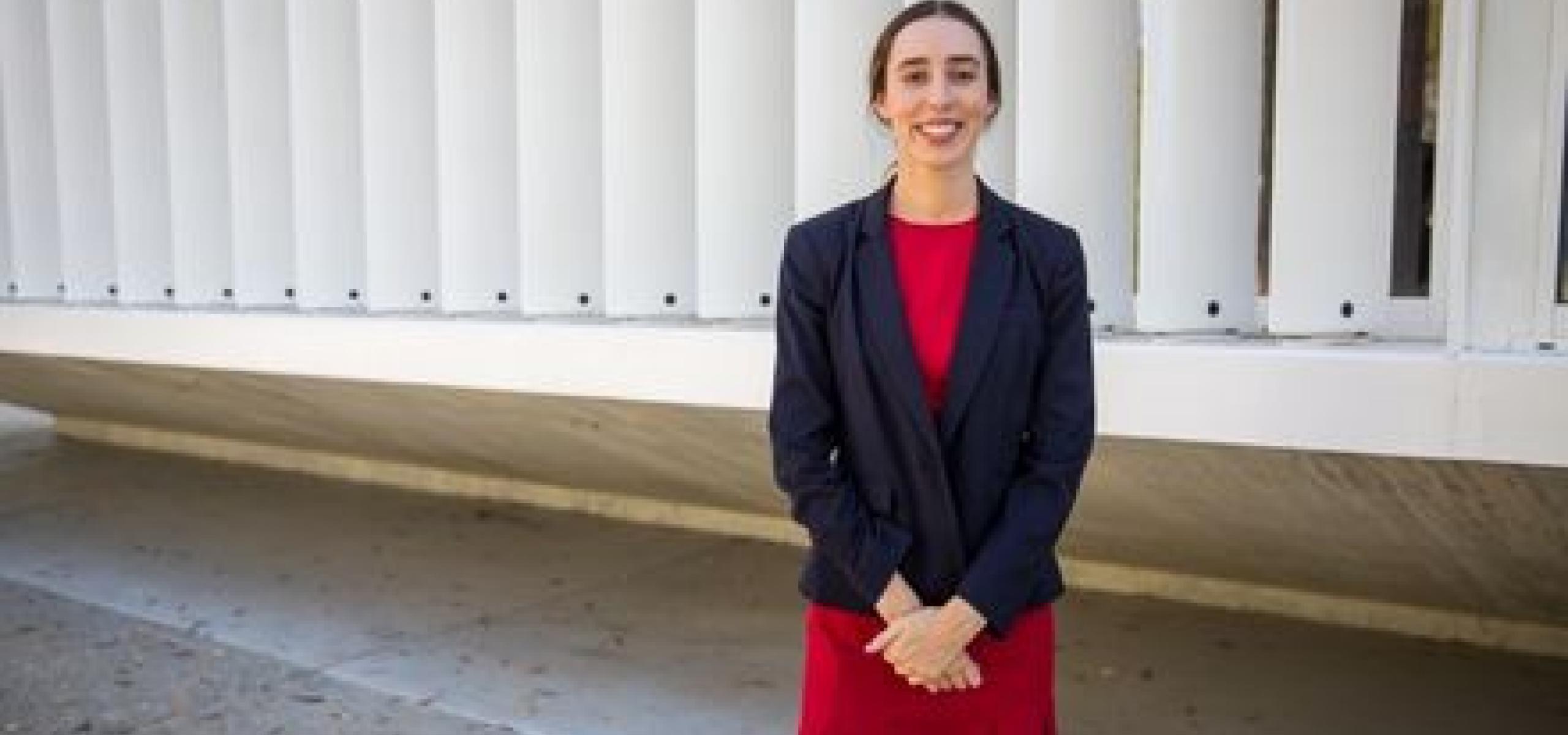
Madeleine McGregor credits mooting and her experiences in the Kimberley and Geneva clinical programs for nurturing her passion for human rights.
The ANU College of Law’s focus on social justice and law reform has informed a lot of my academic and co-curricular pursuits.
Madeleine McGregor grew up in Tasmania, and came to study law at The Australian National University (ANU) in 2016.
Now, she’s getting ready to study a Bachelor of Civil Law at the University of Oxford, having been named the 2022 Rhodes Scholarship recipient for Tasmania, following in the footsteps of fellow Tuckwell Scholar and ANU College of Law alumnus Marcus Dahl (BSc, LLB (Hons), GDLP ’18).
In this Q&A, Madeleine reflects on the experiences that have shaped her ANU journey and what she hopes to achieve at Oxford and beyond.
Congratulations on this fantastic achievement! How did you feel when you received the outcome of the scholarship application process?
It was a huge shock, and then a huge moment to share with my family. I think it is going to take some time to sink in and feel real, but I am very honoured and grateful, especially to the village of support that has brought me here.
What are your plans now that you have received this scholarship?
I’m planning to study a Bachelor of Civil Law focusing on international and comparative human rights law. In the second year, I will undertake a Master of Philosophy in Law with a focus on the role grass-root social movements can play in enforcing human rights. I hope to apply an understanding of solidarity movements to opportunities for enforcing the rights of Australian First Nations, in light of the Uluru Statement from the Heart and Black Lives Matter movements.
How did you come to human rights law as a passion?
My first legal experience was in the Kimberley (an Aboriginal Justice Clinic in Western Australia). I chose to go there because I have always been passionate about human rights and inequalities, and wanted to explore the human rights issues within our own country. It was confronting; the law wasn’t just the tool for justice I’d hoped but was also a weapon of oppression and power.
I also took a study tour in Geneva, which included auditing the Universal Periodic Review of Kenya. It was fascinating and really cemented that so much human rights work happens in spaces quite removed from the people most affected. It showed me that movement lawyering, where change is community-driven, is where I hope to direct my efforts.
Madeleine (centre) with Tom Dunbabin (left) and Ben Durkin, who represented ANU College of Law at the 2021 Sir Harry Gibbs Constitutional Law Moot. The team were joint champions of the competition.
How do you think that your experiences at ANU, both academic and co-curricular, prepared you for this opportunity?
The ANU College of Law’s focus on social justice and law reform has informed a lot of my academic and co-curricular pursuits. This focus has been quite significant in sustaining my desire to use law to make positive change, and shaping what that means.
As a recipient of the Tuckwell and Rhodes scholarships, what is your experience of how philanthropy and generosity can impact a student’s experience?
The biggest impact for me was the freedom it offered to pursue volunteer opportunities, student initiatives and become fully immersed in university culture, including the notorious Inward Bound. In addition, the mentorship and genuine support from the Tuckwell Program has been truly transformational.
Do you have any tips for current or future law students?
My biggest tip for any law student - do mooting! For me, it has been the most critical and engaging way to 'learn the law’. I guess, more generally, my advice would be to get involved in whatever sparks a passion and to embrace it without overthinking where it may lead.
